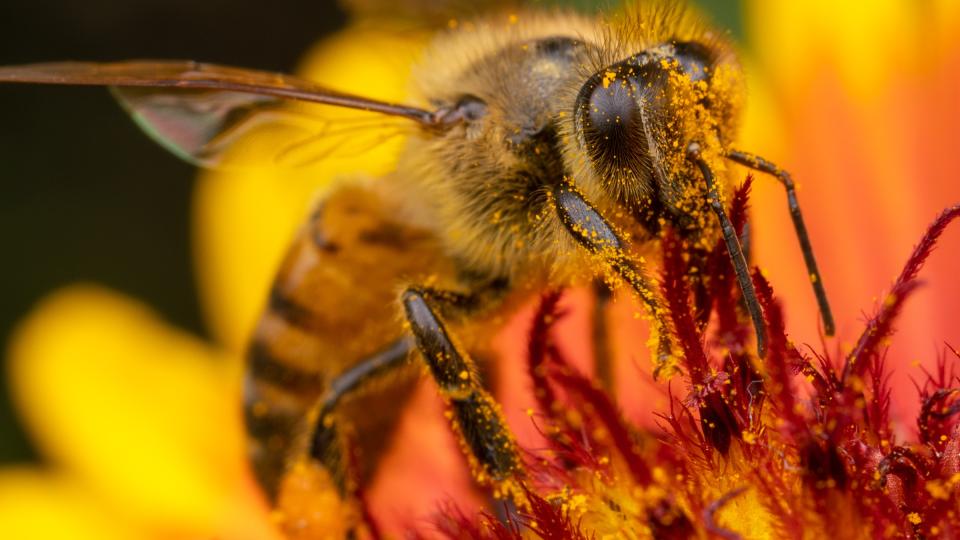Popular garden weedkiller 'could be killing bees in Britain’, experts warn

The world’s most popular weedkiller could be killing bees in Britain – by damaging beneficial bacteria in the guts of bees and making them sick.
American scientists found that glyphosate – aka Roundup – used widely on UK farms, and also by gardeners – may be a factor in the decline of bee numbers.
In Britain, 5.4 million acres of land are treated with the pesticide every year.

Researchers from the University of Texas exposed honey bees to levels known to be found in gardens and crop fields.
READ MORE FROM YAHOO NEWS UK:
James Bulger killer Jon Venables ‘applies to be allowed home for Christmas’
Girl who died after eating Pret baguette’s last words as she struggled for breath
Police officers deliver baby after mum-to-be goes into labour on London high street
‘Serious disruption to food supplies’ after no-deal Brexit, government advice reveals
Parts of England ready for Indian summer as temperatures could hit 22c
They found that nine out of 10 insects were killed by a common bug – compared to 50% of bees who had not been exposed to the chemical.
Lead researcher Erick Motta, from the University of Texas, US, said: ‘We need better guidelines for glyphosate use, especially regarding bee exposure, because right now the guidelines assume bees are not harmed by the herbicide.
‘Our study shows that’s not true.’
Prof Dave Goulson, at the University of Sussex, said: ‘It now seems that we have to add glyphosate to the list of problems that bees face. This study is also further evidence that the landscape-scale application of large quantities of pesticides has negative consequences that are often hard to predict.”
Oliver Jones, a chemist at RMIT University in Melbourne, Australia, said: ‘To my mind the doses of glyphosate used were rather high. The paper shows only that glyphosate can potentially interfere with the bacteria in the bee gut, not that it actually does so in the environment.’
A spokesman for Monsanto said: ‘Claims that glyphosate has a negative impact on honey bees are simply not true. No large-scale study has found any link between glyphosate and the decline of the honeybee population. More than 40 years of robust, independent scientific evidence shows that it poses no unreasonable risk for humans, animal, and the environment generally.’

 Yahoo News
Yahoo News 
